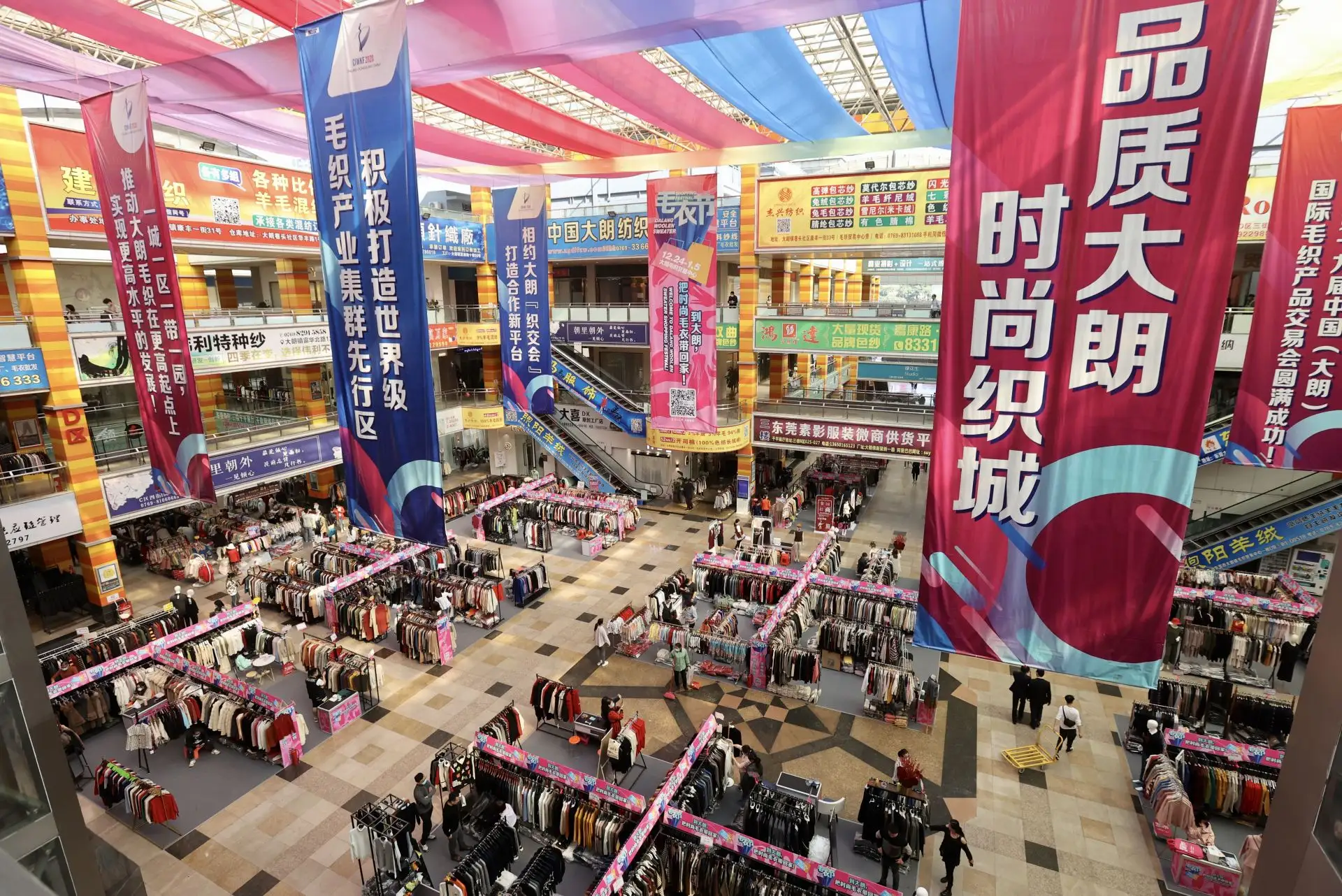The impact of the COVID-19 on knitwear manufacturing industry in Dalang Town
Dalang is closed since 25th Feb 2022 due to COVID-19. This is another closure of the whole town after the closure in December last year, which has an impact on the surrounding yarn suppliers, knitwear factories, and even the national and global knitwear industry. We can see from the following points.
The impact of COVID-19 on yarn supplier
- Dalang is global yarn trading center and the yarns from all over the country can’t enter Dalang which affect the distribution and deployment.
- The sample yarns could not be sent to other places quickly. In the first week, the whole town was closed as the specific data were not clear during the nucleic acid test of the Dalang People, and the goods in the town could not be sent outside. After 5th March, the goods can be transported outward one after another basically, but the speed is very slowly.
- Yarn dyeing basically stopped. Different yarn is dyed in different dyeing factory. The undyed yarns are sent to different dyeing factories and then returned to Dalang after dyeing, then packing into cones and sent to the whole country. Now the intermediate distribution has stopped, which has a big impact on the yarn dyeing delivery.
The impact of COVID-19 on knitwear factory
- Logistics and transportation difficulties caused by traffic restrictions. The logistics transportation between cities is basically suspended which affected production during the outbreak.
- Under the blockade of the whole town, villages are also isolated from each other. Yarns and trims can’t be got on time. Production is basically at a standstill.
- Basically the bulk production is completed by outsourcing collaboration. And the bulk production can’t be delivered due to the suspension of transportation. The goods in the town can’t be delivered, and the goods outside the town can’t be delivered back.
- Half of the sweater factories in Dalang town make foreign trade orders, and half are wholesale supply to Guangzhou wholesalers which caused sweaters sold are difficult to deliver. Dalang knitwear trade center is still a base for knitwear wholesale, and the sold or ordered sweaters can’t be delivered on time.
- Many factories expanded production capacity at the beginning of the year, and the installers were difficult to reach the site for work.
- Increased production costs and future uncertain factors perplex small-medium companies. Rent and utilities have to pay during the COVID-19 and customers may reduce considering the order can’t be delivered on time.
COVID-19 will not end immediately, and the impact will not weaken in a few days. Production needs to be restored and confidence needs to be rebuilt. The impact of the COVID-19 on the sweater manufacturing industry will eventually disappear. Small-medium factories have weak anti risk ability and continuing to shut down production may face the risk of capital chain tension or even rupture and bankruptcy.






